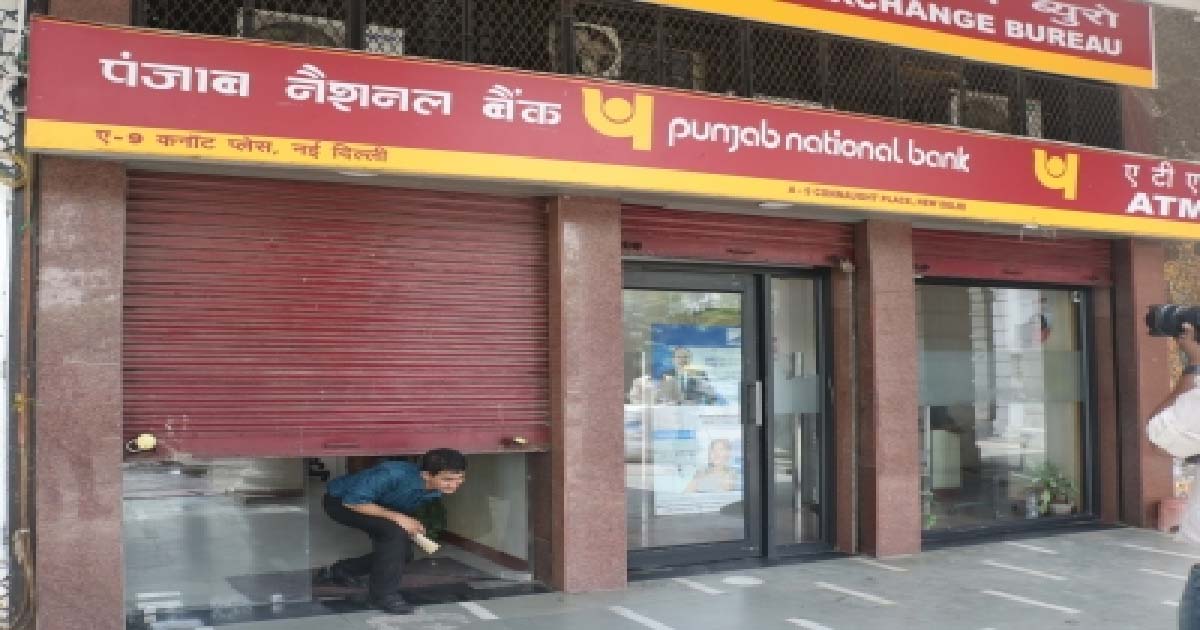Business
Increased Swedish confidence in India’s business potential, markets

India and Sweden, which share more than a decade of camaraderie in terms of political, cultural, social, and economic ties, have only grown closer with the exchange of knowledge and experience. India-Sweden Innovation Summit was a perfect example of such strengthening of ties. Besides innovation and advanced technology, another sector which witnessed similar growth trajectory in network and strategies, is business and trade. Swedish companies have shown tremendous interest in the potential of Indian markets.
Similar kind of optimism was reflected in the 13th edition of the Business Climate Survey (BCS), which exhibited an increasing confidence of Swedish companies in conducting business in India. Additionally, the recent BCS report also showed a substantial increase in Swedish companies’ interest and intent of doing business in India compared to the pandemic-marred 2020.
BCS is a highly-trusted annual survey, conducted since 2008 by the Swedish Chamber of Commerce, India (SCCI), along with the Embassy of Sweden in India, the Consulate General of Sweden in Mumbai, and Business Sweden. It is undertaken every year to understand the strengths and weaknesses of India-Sweden business relations, and how long-standing and emerging obstacles can be identified, reduced and resolved.
So far, more than 220 Swedish companies are operating in India, actively contributing to various business verticals, such as Industrial Equipment; IT & Electronics; Healthcare MedTech & Pharma; Business Services; Retail Consumer Goods & Services; Automotive Heavy Vehicles & Auto Components. More companies are now entering the Environmental Technology & Energy sector (Water, waste, HVAC, etc.). These companies have had a huge impact on the Indian job market as they employ over 200,000 people directly and another 2.2 million indirectly.
Commenting on the strengthening of ties between the two nations, Anna Hallberg, Swedish Minister for Foreign Trade and Nordic Affairs, said: “Sweden and India’s bilateral cooperation has grown even stronger despite the pandemic. Swedish companies have repeatedly shown that they have a long-term commitment towards India. Therefore, I am particularly proud that the 2021-22 Business Climate Survey (BCS) has received such a massive response and highlights important areas such as green transition and women in the workforce.
“The BCS provides valuable information on the business climate in India, as perceived by Swedish companies. It is therefore of great importance to the Swedish Government and will play an important role in the preparations for the upcoming meeting of the Joint Commission for Economic, Industrial and Scientific Cooperation, and for the preparations of the upcoming trade negotiations between India and the EU.”
At the launch of this year’s BCS report, Sweden’s Ambassador to India, Klas Molin, remarked: “Swedish companies continue to thrive in India. Even in the wake of the challenges posed by the pandemic, Swedish companies have continued to invest, expand, and believe in India. As reflected in the Business Climate Survey, it is highly encouraging to see that so many Swedish companies are planning to increase their investments in India in the years ahead.”
This year’s survey, titled ‘Towards Sustainable Growth’, reflected the commitment shown by Swedish companies in their long-term association with India, given the country’s business environment, which is deemed supportive and encouraging with promising growth prospects. Interestingly, despite the pandemic adversely impacting the country’s economic growth, Swedish companies are looking forward to expanding their business and investment in India, especially in sustainable technologies, to create a greener and a lasting impact. Besides, the survey also took into account the increase in job opportunities and representation of women in the Indian workforce. These also acted as one of the key factors influencing business dealings between the two nations.
In line with the ongoing trends and key agenda of exploring business opportunities in India, a six-member delegation led by Sweden’s Ambassador to India Klas Molin will soon be visiting Sweden for a weeklong roadshow titled “Time for India”. Among diplomats accompanying Molin will be Consul General of Sweden to Mumbai Anna Lekvall, Trade Commissioner Cecilia Oskarsson, General Manager of the Swedish Chamber of Commerce to India Sara Larsson and Counsellors for Science & Innovation and Trade Per-Arne Wickström and Markus Lundgren.
The delegation will be joined by India’s Ambassador to Sweden & Latvia Tanmay Lal, and Chairman of Sweden India Business Council Hakan Kingstedt. The roadshow will start from Stockholm, followed by Lulea, Göteborg, Malmo and then back to Stockholm, where the Indian Embassy in Sweden will be organising a final seminar on Investing in India.
“Time for India” will have a series of breakfast seminars, which will provide a comprehensive insight into different sectors and markets linked to the Indian trade industry and their business potential. The trade roadshow will focus on analysing and availing the opportunities available to Swedish companies in India and for Indian companies in Sweden and forming required strategies to strengthen trade ties between the two nations, keeping in mind the current economic developments.
Speaking about the ambitious business campaign, Ambassador Klas Molin said: “Time for India is a part of an ambition shared by Sweden and India to strengthen and increase bilateral trade and investments. The plan that has been tasked us to perform has been backed by our Prime Ministers as well as Indian and Swedish Ministers of Commerce, Piyush Goyal and Anna Hallberg, respectively. Our goal is to increase investments, opportunities, employment and the flow of goods and services between our countries.”
Molin added that the roadshow’s roadmap includes exploring business opportunities, holding talks with private sector representatives, government, and other decision makers to discuss trade and investment-related issues. The delegation will also look at the next steps to further facilitate business collaborations and means to assist Team Sweden and Team India in the process.
Expressing optimism about the upcoming talks, Trade Commissioner Cecilia Oskarsson said: “In the last few months as Trade Commissioner for Business Sweden in India, I have seen the potential for collaboration and investments substantial. The Indian government has brought most of the key infrastructure sectors in India under the automatic route which allows 100% foreign direct investment (FDI).
“The new master plan aims to boost employment opportunities, make interconnectivity easier between road, rail, air and waterways to boost efficiency, and improve industrial productivity. It also aims to help India become a manufacturing hub, attract foreign investors and raise the possibility of future economic zones through multimodal connectivity that provides manufacturers faster access to domestic and international markets. It’s certainly time to invest in India.”
Business
PNB declares Rs 2,434 crore alleged loan fraud against former promoters of Srei firms

New Delhi, Dec 27: Punjab National Bank (PNB) has declared a Rs 2,434 crore alleged loan fraud by the former promoters of Srei Equipment Finance and Srei Infrastructure Finance.
In a late evening exchange filing, the state-run PNB said that “Pursuant to the applicable provisions of SEBI (LODFR) Regulations, 2015 and the Bank’s Policy for determining materiality of events/information required to be reported to the Stock Exchanges, it is hereby informed that the bank has reported borrowal fraud to RBI against the erstwhile promoters of Srei Equipment Finance and Srei Infrastructure Finance”.
PNB said that of the total fraudulent borrowings, Rs 1,240.94 crore is related to Srei Equipment Finance and the remaining Rs 1,193.06 crore is related to Srei Infrastructure Finance.
The public sector lender also said it has 100 per cent provisions for these loans. The bank said the declaration of these two accounts as frauds is based on a forensic audit, which pointed to irregularities such as loans to connected parties and potential evergreening of loans.
However, Srei group has challenged the forensic audit report as the basis for the fraud classification, noting the matter is subjudice.
Other banks such as Punjab & Sind Bank, Bank of Baroda, and Union Bank of India have also earlier declared a loan fraud in connection with Srei companies.
The Srei group has been undergoing an insolvency resolution process since 2021, and the National Company Law Tribunal has approved a resolution plan submitted by the National Asset Reconstruction Company in 2023. The Srei group was sent to the NCLT by the Reserve Bank in October 2021 after it had found governance issues and defaults and the regulator superseded the boards of Srei Infrastructure Finance and Srei Equipment Finance.
In February 2023, NARCL emerged as the successful bidder for SIFL and SEFL which together owed Rs 32,750 crore to lenders. NARCL won the bid in February 2023, got the NCLT approval in August 2023, and finalised the acquisition by January 2024.
Business
India 2nd largest mobile manufacturing country in the world: Minister

New Delhi, Dec 27: India has ramped up electronics production six-fold and is the second largest mobile manufacturing country in the world, Union Minister of Electronics and Information Technology Ashwini Vaishnaw said on Saturday.
In multiple posts on social media platform X, Vaishnaw said that the country has increased electronic exports eightfold over the past 11 years, mainly driven by policy support from the Production Linked Incentive Scheme.
The PLI scheme for Large Scale Electronics Manufacturing has attracted over Rs 13,475 crore in investment and helped achieve production of about Rs 9.8 lakh crore in the electronics sector, driving manufacturing, jobs, and exports, he said.
Vaishnaw highlighted that “over 1.3 lakh jobs were created in the last five years and that electronics is now India’s third‑largest export category, climbing from seventh place”.
He said the country was initially focusing on finished products, but the Electronics Component Manufacturing Scheme supported a shift to “building capacity for modules, components, sub-modules, raw materials, and the machines that make them.”
The Electronics Component Manufacturing Scheme has 249 applications representing Rs 1.15 lakh crore in investment, Rs 10.34 lakh crore in production, and creating 1.42 lakh jobs, the post said, adding it is the highest-ever investment commitment in India’s electronics sector, indicating industry confidence.
Vaishnaw also noted progress in the semiconductor sector, saying ten units have been approved, with three already in pilot or early production. The minister said that “fabs and ATMPs from India will soon supply chips to phone and electronics manufacturers”.
“Electronics manufacturing created 25 lakh jobs in the last decade. This is the real economic growth at the grassroots level,” the minister said.
“As we scale semiconductors and component manufacturing, job creation will accelerate. From finished products to components, production is growing. Exports are rising. Global players are confident. Indian companies are competitive. Jobs are being created. This is ‘Make in India’ impact story!” he noted.
Business
Indian stock market ends holiday-shortened week in positive terrain

Mumbai, Dec 27: Indian equity markets ended the week in a positive terrain, buoyed by expectations of stronger domestic demand, a favourable liquidity outlook and optimism over potential Fed policy easing in 2026, analysts said on Saturday.
The holiday-shortened week opened with a bullish undertone; however, momentum tapered off as the days progressed.
On Friday, Sensex closed at 85,041.45, slipping 367.25 points or 0.43 per cent. Nifty also ended in the red, falling 99.80 points or 0.38 per cent to settle at 26,042.30.
According to market watchers, the year-end lull kept trading largely range-bound, with hopes for a Santa Claus rally diminishing amid the absence of fresh catalysts, limited progress in US–India trade talks, and caution ahead of the upcoming earnings season.
“Sectoral trends were mixed, marked by selective profit booking across most segments, while metals, FMCG, and media stocks offered notable resilience,” said Vinod Nair, Head of Research, Geojit Investments Ltd.
Nifty 50 ended the week at 26,042, continuing to respect its long-term rising channel on the daily chart. The index remains comfortably above the 20-day EMA cluster, preserving the medium-term bullish structure, said analysts, adding that as long as Nifty sustains above the 26,000–25,900 support zone, the overall bias remains positive.
On the domestic front, RBI’s liquidity interventions, such as open market operations and a USD/INR buy–sell swap, helped stabilise the rupee, though persistent FII outflows continued to weigh on sentiment.
Meanwhile, gold advanced on safe-haven demand, while crude prices hovered near multi-year lows, though U.S. steps to tighten pressure on Venezuelan oil shipments could exert upward pressure in the near term
Looking ahead, market sentiment is likely to stay cautious as investors brace for the upcoming earnings season while remaining attuned to global developments and currency movements, said analysts.
Attention will also turn to next week’s data releases, including India’s industrial and manufacturing output figures, manufacturing PMI, and the US FOMC minutes, said Nair.
-

 Crime3 years ago
Crime3 years agoClass 10 student jumps to death in Jaipur
-

 Maharashtra1 year ago
Maharashtra1 year agoMumbai Local Train Update: Central Railway’s New Timetable Comes Into Effect; Check Full List Of Revised Timings & Stations
-

 Maharashtra1 year ago
Maharashtra1 year agoMumbai To Go Toll-Free Tonight! Maharashtra Govt Announces Complete Toll Waiver For Light Motor Vehicles At All 5 Entry Points Of City
-

 Maharashtra1 year ago
Maharashtra1 year agoFalse photo of Imtiaz Jaleel’s rally, exposing the fooling conspiracy
-

 National News1 year ago
National News1 year agoMinistry of Railways rolls out Special Drive 4.0 with focus on digitisation, cleanliness, inclusiveness and grievance redressal
-

 Maharashtra1 year ago
Maharashtra1 year agoMaharashtra Elections 2024: Mumbai Metro & BEST Services Extended Till Midnight On Voting Day
-

 National News1 year ago
National News1 year agoJ&K: 4 Jawans Killed, 28 Injured After Bus Carrying BSF Personnel For Poll Duty Falls Into Gorge In Budgam; Terrifying Visuals Surface
-

 Crime1 year ago
Crime1 year agoBaba Siddique Murder: Mumbai Police Unable To Get Lawrence Bishnoi Custody Due To Home Ministry Order, Says Report
















